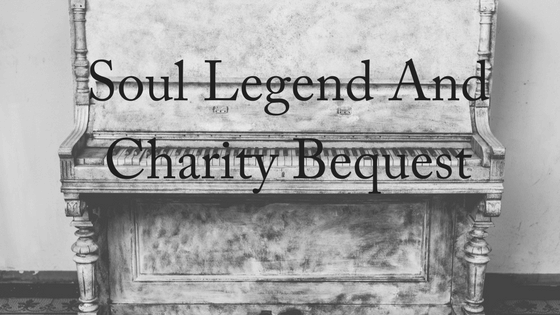The long-running dispute over soul singer James Brown’s estate continues to be mired in an ugly court battle over a charity bequest in Brown’s will. Brown’s fortune has been contested since his death in 2006, with fourth wife Tomi Rae Hynie Brown challenging the rest of the Brown family over a charity bequest.
 James Brown died in 2006 and since then, his estate has been tangled up in estate disputes. At the time of his death, his estate was worth about $100 million. Brown wanted to give the majority of his fortune into a trust to provide education for under-privileged kids in South Carolina and Georgia. It was this charity bequest that led to the almost decade-long dispute, along with Brown’s complicated personal life.
James Brown died in 2006 and since then, his estate has been tangled up in estate disputes. At the time of his death, his estate was worth about $100 million. Brown wanted to give the majority of his fortune into a trust to provide education for under-privileged kids in South Carolina and Georgia. It was this charity bequest that led to the almost decade-long dispute, along with Brown’s complicated personal life.
While his estate was worth a reported $100 million, he also participated in several marriages and had a significant drug and alcohol dependency. Most of his children were estranged from him at the time of his death.
Less than a month after his death, his seven children and fourth wife contested the will. His children alleged that the executors of the will, friends and advisors of Brown, had unduly influenced the singer, taking advantage of Brown’s drug problems to have him sign a will he didn’t fully understand. The then Attorney-General of South Carolina brokered a deal after several years of bitter dispute, in which the trust received half of the estate as the charity bequest, his wife received a quarter, and the remaining quarter was split between his children.
However in 2013, the South Carolina Supreme Court overturned the settlement, saying that it contravened Brown’s wishes for most of his money to go to charity. The estate was taken back to court when the executors were removed, citing financial mismanagement. The executors sued the estate. The Supreme Court denied the claim of diminished capacity, stating that Brown’s wishes for his estate were clear.
James Brown’s music has remained popular and generates millions of dollars each year in royalties for the estate. Nearly ten years after singer died, not one person had received a penny from his estate.
At the time of the estate litigation, Alan Leeds (former manager of Brown) stated: “This thing could go on for eternity. I don’t know how you resolve it. There’s just chaos and confusion and mixed agendas.”
In 2000, the year he signed the will, Brown explained in an audio tape the reasons for his decision. He hoped to establish a scholarship fund that would benefit both black and white children. The will put aside $2 million in scholarships for his seven grandchildren and divided another $2 million in personal effects and memorabilia among six children. Any heir who challenged the arrangement would be disinherited, he said.
During the dispute, several of Brown’s children argued that their father had been influenced by lawyers and managers who stood to profit from what was claimed to be diminished mental capacity, due to Brown’s drug problems.
There seems to be no end in sight for the estate dispute, with Brown’s fourth wife discovered to have been married to someone else. Brown had filed for an annulment in 2004 but let the action lapse after Ms Hynie Brown signed a document promising that she would not claim to be his de facto wife or make a claim on his estate. Ms Hynie claims that her husband would not mean to have disinherit her.
It is now thought that the value of the estate has dropped by half in the decade since Mr Brown’s death.
What if I want to leave a charity bequest?
 In Queensland, the law expects will makers to reasonably provide for their spouse, children, and any other dependents (such as step children).
In Queensland, the law expects will makers to reasonably provide for their spouse, children, and any other dependents (such as step children).
A study by the Australian Centre for Philanthropy and Nonprofit Studies at the Queensland University of Technology found that challenges to charitable bequests by the testator’s family members have become more common. The report, Family Provision Applications and Bequests to Charity says: ”Courts are vigorous in upholding proper family provision as against charitable bequests, portraying the family provision as based on moral obligation. The original purpose of family provision law was to enforce the proper maintenance and support of a testator’s spouse and children.”
In other words, the courts seem to prefer family members being looked after over bequests to charities. As always, the law is complex and you should always seek specialist legal advice when drawing up a will.
For friendly, expert advice, contact us today. We offer a FREE, 10-minute phone consultation.

